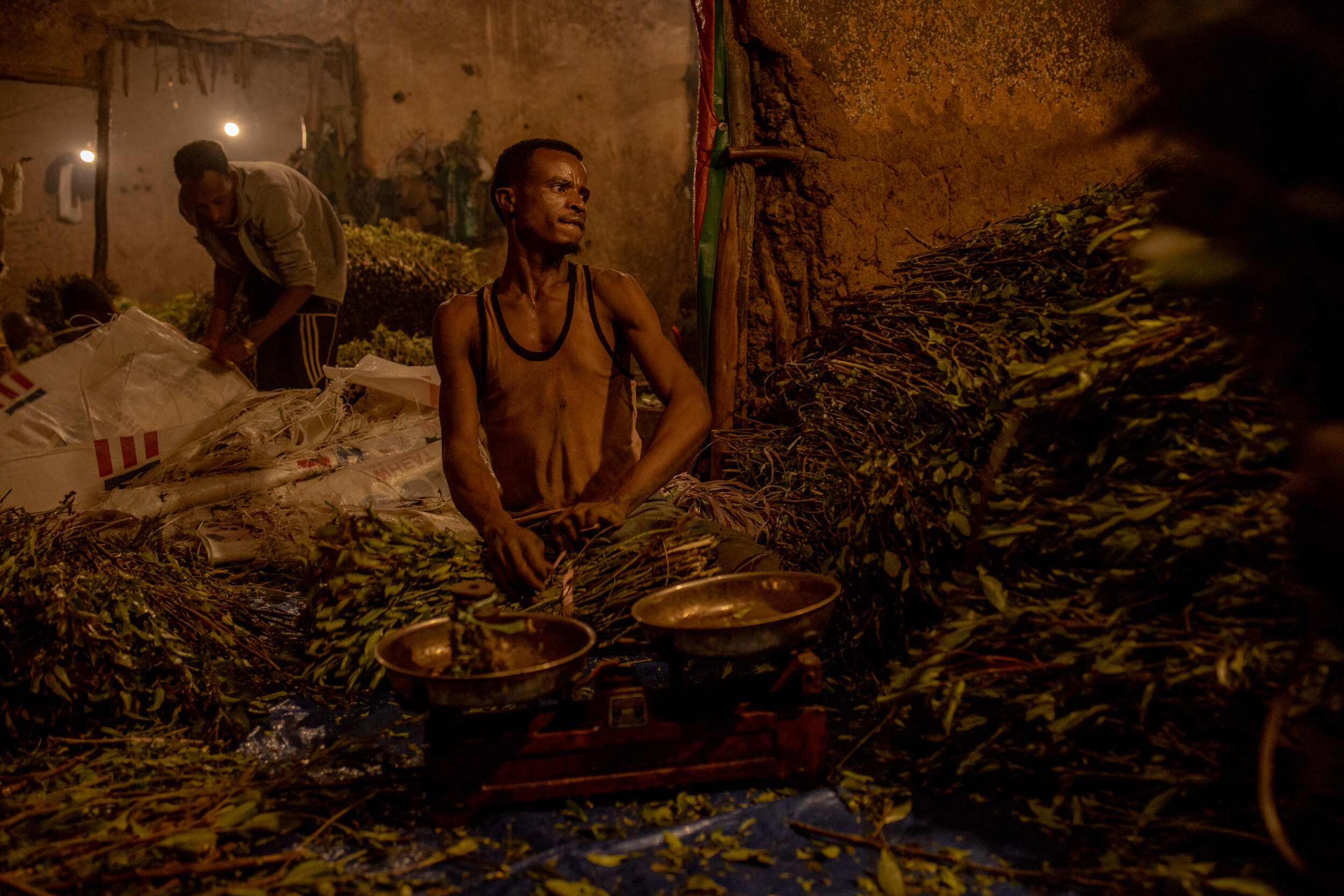












Alengo Osman Ahmed, 22, a khat sorter poses for a portrait with a bundle of sorted chat leaves in a shop in Awaday, Ethiopia.

Mustafa Mume, 50, harvests khat in his fields in Haramaya, Ethiopia. The profits of the drug allow him to send some of his eleven children to school and build a house.

Musa Abdullah ties up khat bundles in one of the biggest trading and sorting shops in Awaday, Ethiopia. The shop is owned by Somalilandian company Faraska A’ad or The White Horse.

Kadiya Hassan particiaptes in a Sufi ceremony while wearing khat tucked under her scarf, Harar, Ethiopia. For Harari Sufis khat is an essential part of their weekly gatherings.

A Sufi man eats khat while heating drums for a Sufi ceremony, Harar, Ethiopia. For Harari Sufis chat is an essential part of their weekly gatherings.

Khat sorters, porters and buyers pray in one of the biggest khat trading and sorting shop owned by the company Faraska A’ad or the White Horse in Awaday, Ethiopia.

Khat farmers ride on the back of a truck between Awaday and Harar, Ethiopia. After selling their crop on the khat market they return to their home villages.

A khat truck drives through a detour near the road between Kalabaydh and Hargeysa, Somaliland. The truck is owned by an Ethiopian khat company and carries the drug from Ethiopian Highlands.

Customs officers and porters weigh bags of khat in Kalabaydh, Somaliland. The de-facto state of Somaliland derives about 18 percent of its annual budget through customs on chat.

A man inspects another man's chat (Catha edulis) load in Awaday, Ethiopia. Awaday is the hub of the Ethiopian khat trade.